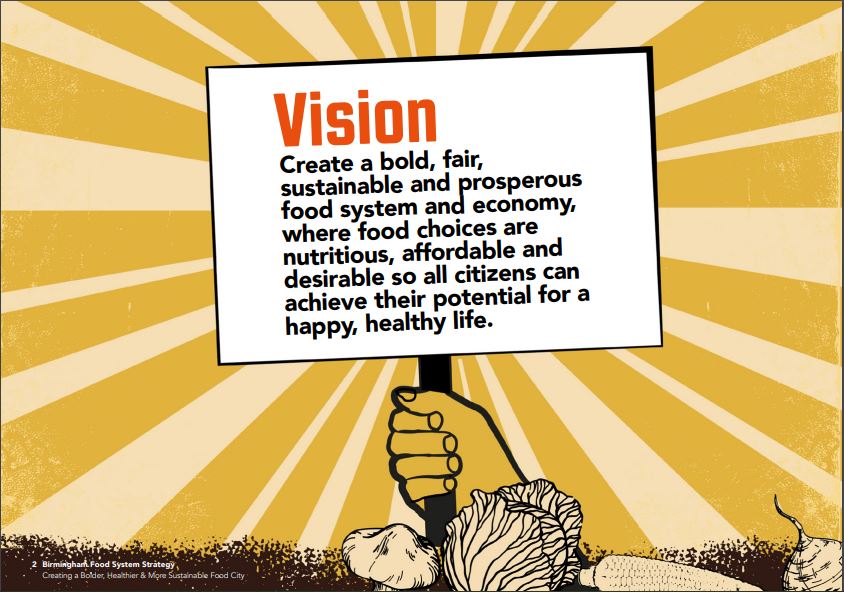“VISION: Create a bold, fair, sustainable and prosperous food system and economy, where food choices are nutritious, affordable and desirable so all citizens can achieve their potential for a happy, healthy life.” [Birmingham Food System Strategy]
.
What is a ‘sustainable food policy’? And should East Devon have one?
We could look to the example of Bristol:
In May 2021, Bristol was awarded the status of Gold Sustainable Food City by the UK’s independent Sustainable Food Places Board. Bristol was awarded Gold for its innovative approach and continuing commitment to:
- Reduce food waste
- Grow the city’s good food movement
- Address food inequality
- Increase urban food growing
- Improve catering and procurement
- Tackle the impacts of our food system on public health, nature and climate change

We could also look to the example of Birmingham:
VISION: Create a bold, fair, sustainable and prosperous food system and economy, where food choices are nutritious, affordable and desirable so all citizens can achieve their potential for a happy, healthy life. Birmingham Food System Strategy (Short Version)
But perhaps we shouldn’t look to the example of Exeter:
City council sustainable food policy is a climate crisis red herring: Proposed changes don’t apply to council meetings or most council food provision and are expected to have unquantifiably small impact while diverting resources from major decarbonisation challenges. City council sustainable food policy is a climate crisis red herring – Exeter Observer
On the other hand, at county level, there is something quite ambitious – from the Devon Climate Emergency group:
KEY OUTCOMES: We need to take a holistic, whole catchment approach to land and marine management.
- Must learn from and share existing best practice in Devon and beyond – create mechanisms for this e.g farmer networks and demonstration farms.
- Public and farmers need access and support to acquire the information and skills to shift to net-zero food and farming culture.
- Public procurement is a key lever for supporting sustainable agriculture and food culture.
- Regional farming, processing and distribution infrastructure needs greater support, including funding and removal of national policy barriers.
- Need to better understand “blue carbon” opportunities and limits – marine sequestered carbon.
- National policy and subsidy framework will be highly influential in ability of Devon to achieve net-zero carbon food and farming – including ways to internalize socio-ecological externalities.
Food, Land and Sea – Devon Climate Emergency
As for East Devon, there are some mentions of ‘food’ in its climate change strategy of 2020: EDDC Climate Change Strategy.pdf
Last October the District Council announced it was working with Fairshare, “to reduce unnecessary food waste, look after our environment, [and] help families, from all walks of life, to reduce shopping bills.” More than 60,000 free meals given to East Devon families | Exmouth Journal
And in March this year, the council brought in a Public Health Implementation Plan, which included: Various teams working together to support access to healthy food and nutritional awareness East Devon District Council creates action plan to improve health and wellbeing of residents | Local News | News | Seaton Nub News
That doesn’t really amount to a ‘sustainable food policy’ for East Devon.
Something for the administration after the May elections?